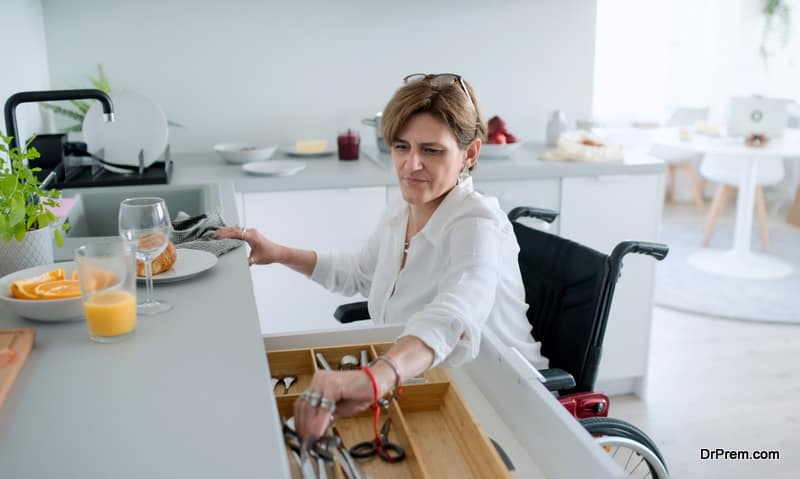If you have a loved one struggling to live independently, it can be tough to know how to best care for them. You want to make sure they’re taken care of, but you also don’t want to stifle their independence.
Independence is an integral part of life, and we should all do what we can to honor that desire in our loved ones.
Let’s see some tips that’d help you care for someone who still wants to be independent.
1. Consider What Independence Means

To understand how to care for someone who wants independence, you have to understand what it means. Independence is the ability to live life without help or control from others. It can mean different things to different people.
For some, being independent looks like living alone, while for others, it might look like having a job and taking care of themselves financially.
The important thing is that you and your loved one work together to figure out what independence means to them.
2. Install Medical Monitoring Devices at Home
If your loved one struggles to live independently due to health concerns, consider installing medical monitoring devices in their home. This will allow you to keep an eye on their health and make sure they’re staying safe.
Medical monitoring devices can include:
- Blood pressure and heart rate monitors
- Motion sensors
- Medical alert systems
These devices can provide peace of mind to both the elderly person and you, as you are able to monitor them remotely. It also provides them with the option of monitoring their own health easily; for example, plenty of smartwatches now give health readings.
Devices that provide medical alerts are incredibly useful if your relative wishes to have some independence; they are able to call upon you in emergencies by simply pressing a button. These devices can also be connected to emergency services, and some types of medical alert devices also include motion sensors if your loved one is a fall risk.
3. Check on Them Regularly

If your loved one lives alone and struggles with a health concern, it’s a good idea to check on them regularly.
Maintaining independence doesn’t mean your loved one should be left alone. In fact, they may need extra help or support at home to maintain their independence.
Check in on them every couple of days, especially if they’re living alone.
4. Give Them Options
If your loved one lives alone, give them options when it comes to their care. This will allow them to make choices that are right for them.
When they’re given options, they can be more self-sufficient in their care.
This will make them feel more independent and help them maintain their independence, which is ultimately what you want.
5. Help Them Maintain Social Connections

One of the biggest challenges to living independently is feeling lonely and isolated. When you’re living alone, it can be hard to meet people and maintain friendships.
However, it is important to maintain social connections. The reason for this is that social connections are essential to overall health and well-being.
If your loved one struggles to maintain social connections, help them find ways to meet people. They can join a club, attend community events, or participate in activities with other loved ones.
6. Consider a Companion or Home Caregiver
If you feel like you’re struggling with how to care for a loved one who wants independence, consider hiring a companion or home caregiver.
Companions and home caregivers are trained to provide care and support, while also respecting your loved one’s independence.
They are able to help with daily tasks, provide companionship, and monitor their health. They can also help your loved one maintain social connections, which helps them maintain their independence.
Hire a professional companion or caregiver if you or your loved one needs help with daily tasks, monitoring health, or social connections.
7. Stick to a Schedule

If your loved one lives alone and wants to maintain their independence, stick to a schedule.
By sticking to a regular schedule, they’ll know what to expect and be able to more easily do things on their own.
A schedule can include:
- What time the meals are
- When they take their medications
- When they go to bed
- When they get up
- When they do various tasks around the house
Having a schedule will help your loved one live life on their own terms, while also giving them a sense of safety and security.
To Sum Up
Building independence is an essential part of life. Everyone deserves to be independent, and that includes your loved one.
Independence can be a difficult thing to achieve, but if you learn how to care for someone who still wants to be independent, it can be easier to achieve.
By giving your loved one a sense of control, you can help them maintain their independence while also giving them the support they need.
Article Submitted By Community Writer




